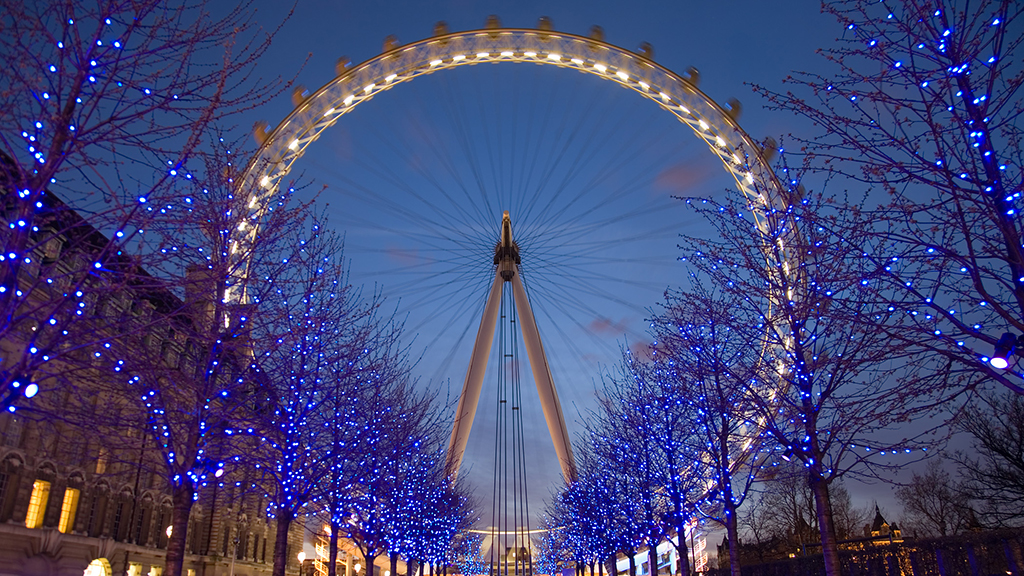A view from across the pond
 Supplied - Diliff
Supplied - DiliffCanada was born as one of many daughters of the British Empire, but how does modern-day Canada look from the point of view of modern Britain?
Allow me to introduce myself. My name is Dominic and I’m an international student from the United Kingdom. Born and raised in Southeast England, in a small rural town of 9 million inhabitants called London, I joined the U of A in September for a two-year graduate course in Chemical Engineering. But now that you have advantage of me, I wouldn’t want to drone on about myself. In this series of articles, I will examine Canadian culture, government and people from a British and a European perspective.
Coming here from the UK, there are some obvious differences which strike me immediately, and others which are more subtle, taking time to make themselves apparent. Only in the fullness of time does one realize that what is at first confusing to me, is self-evident to Canadians because they’re living in a different paradigm entirely.
In many ways, this is the classic “compare and contrast” which is the staple of so many school essays. But I hope you will find it interesting and thought-provoking. Indeed, I hope that it will make you dive through the snow, ice and, of course, the maple syrup, to the very bottom of your Canadian soul. This series is not, however, only aimed at natives of this land, but also to the many international students who, like me, have taken the great leap across the ocean — or the small hop across the border. You will doubtless smile and nod at more than a few things, and perhaps feel confused at some which are as familiar to you as they are to Canadians.
In this series I will write on many topics, ranging from the national economy to grocery shopping, and from people to institutions, but for now I will set the stage by telling you a few things about my home country and its history.
***
The United Kingdom is small but populous — twice as populous as Canada. But if you spread everyone in the UK out evenly over the country, each individual would still have about an acre all to themselves. Not a bad amount. If you did the same thing in Canada, then each person would have closer to a hundred acres. Why isn’t everyone in Canada a farmer?
Despite our small size, we have had a disproportionately large impact on world history, due in no small part to our navy, which enabled us to explore, trade with and colonize far-off parts of the world before anyone else. An institution such as a navy requires good leadership, which turned out to be one of our strong points. And when soft tactics failed, the unruly working classes who operated these great ships were kept under control by frankly barbarous methods of discipline, such as keelhauling.
We got in early on the industrial revolution, too. We were big on steam engines, railways, factories and steel works. Of course all of this stuff needs coal, and there are some interesting parallels between early British use of coal and the modern Canadian fossil fuel industry. This will be the subject of a later article.
Industry and Empire complemented each other nicely, and in time London became the centre of a large trade network, bringing in timber from Canada, wool from Australia, gold from South Africa, and manufactured goods from the north of England.
Rich people in England wanted a way to invest in all these profitable overseas activities. In a stone Gothic building on the gas-lit streets of Victorian Westminster, the Limited Liability Company was invented. Shareholders could now invest in overseas ventures with minimum risk and without leaving the home comforts of what Conan Doyle would call “The Great Metropolis.” Some of the first corporations were therefore international, investing in such things as Canadian timber, railways and mining. While this early form of modern capitalism has evolved over the years in GB, it has been retained in almost its original form — raw and unadulterated — in Canada, and particularly Alberta. If this seems like a bold statement, carry on reading this series for an explanation.
The LLC was not the only legal entity Canada inherited from Great Britain. In fact, Canada inherited all its basic laws from us, only diverging after it started on the road to independence. Canada became autonomous in 1867, although not completely independent, and we continued to have close links for many decades after total independence. To this day Canada is in the Commonwealth of Nations. It is this shared history which accounts for so many of the similarities between the two countries, while the massive disparity in population density alluded to earlier is fundamentally responsible for many of the differences.
***
Here ends the History lesson. If you’re not Canadian, or European or from the Commonwealth, perhaps you didn’t know much of this already. And if you are, well, I hope it brought back fond memories of high school. Or taught you something new if you didn’t listen in history classes.
I hope, therefore, that this very short account of my country and its historical association with Canada has laid the groundwork for my next articles, so you know what I’m comparing Canadian life to. Next time, I’ll be writing about the thing everyone says Brits like to talk about: the weather. I am British after all.




